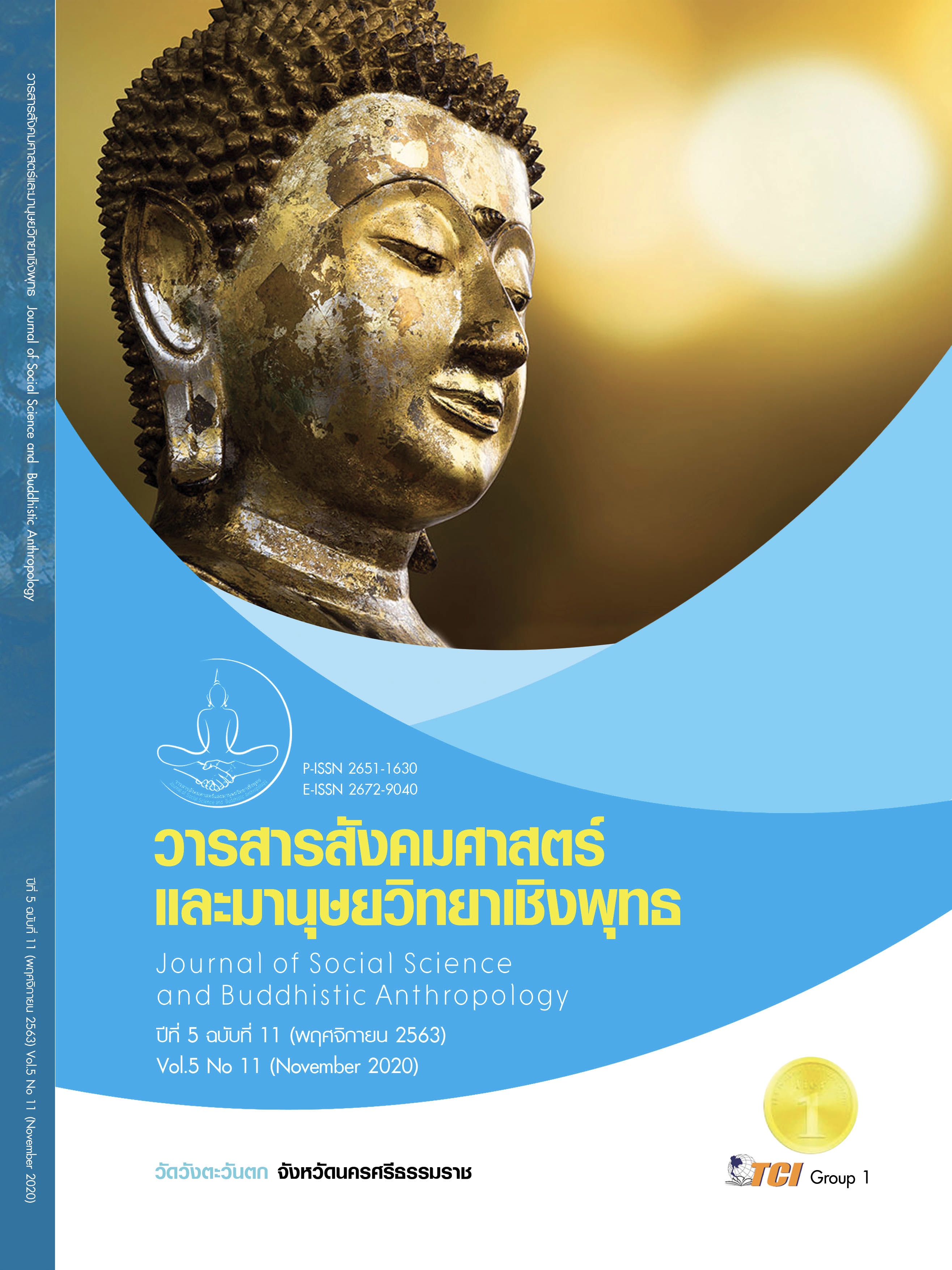ชุมชนกับการจัดการปัญหาความเหลื่อมล้ำเพื่อการพัฒนาที่ยั่งยืน กรณีศึกษาชาวตำบลหนองสาหร่าย
คำสำคัญ:
ชุมชน, ความเหลื่อมล้ำ, การจัดการปัญหาความเหลื่อมล้ำ, การพัฒนาอย่างยั่งยืนบทคัดย่อ
บทความวิจัยนี้มีวัตถุประสงค์เพื่อ 1) เพื่อศึกษาบริบท และสภาพปัญหาความเหลื่อมล้ำที่ส่งผลกระทบต่อการดำรงชีวิตของชาวตำบลหนองสาหร่าย 2) เพื่อศึกษากระบวนการการแก้ไขปัญหาความเหลื่อมล้ำของชาวตำบลหนองสาหร่าย 3) เพื่อวิเคราะห์ สังเคราะห์และนำเสนอรูปแบบการจัดการตนเองของชุมชนท้องถิ่นเพื่อแก้ไขปัญหาความเหลื่อมล้ำในพื้นที่ด้วยตนเอง เป็นงานวิจัยเชิงคุณภาพ โดยผู้ให้ข้อมูลหลัก คือ กลุ่มแกนนำชุมชน 8 หมู่บ้าน และประชากรผู้เข้าร่วมกิจกรรม 25 คน โดยใช้แบบสัมภาษณ์ไร้โครงสร้าง เป็นแนวทางการสัมภาษณ์เชิงลึก และใช้การวิเคราะห์ข้อมูลเชิงพรรณนา และวิเคราะห์เชิงเนื้อหา ผลการวิจัยพบว่า 1) ชาวตำบลหนองสาหร่าย ประสบกับปัญหาความเหลื่อมล้ำที่เกิดจากการไม่สามารถเข้าถึงทรัพยากรในการเพาะปลูก การเข้าถึงแหล่งทุน การเข้าถึงอำนาจทางการเมือง และเข้าถึงสวัสดิการต่าง ๆ 2) ชาวตำบลหนองสาหร่าย มีระบบการแก้ไขปัญหาความเหลื่อมล้ำ โดยอาศัยกระบวนการ คือ 2.1) การรวมกลุ่มเพื่อเพิ่มอำนาจในการต่อรอง 2.2) สร้างการมีส่วนร่วมของชุมชนในทุกระดับ 2.3) การทำงานอย่างเป็นระบบ 2.4) การติดตามประเมินผล 3) ทำให้สามารถสังเคราะห์รูปแบบการจัดการตนเองเพื่อแก้ไขปัญหาความเหลื่อมล้ำของชุมชนท้องถิ่นได้เป็น 5G Model (หนองสาหร่ายโมเดล) ประกอบด้วย G 1 = Good Leader คือ การมีผู้นำที่ดี G 2 = Good Team การมีทีมงานที่ดี G 3 = Good Planning การมีแผนที่ดี G 4 = Good Participation การมีส่วนร่วมที่ดีมีประสิทธิภาพ และ G 5 = Good Quality of life การมีคุณภาพชีวิตที่ดี
เอกสารอ้างอิง
กรมการปกครอง. (2561). แจ้งข้อมูลทางการปกครอง. เรียกใช้เมื่อ 22 ตุลาคม 2563 จาก https://www.isranews.org/thaireform/thaireform-data/74020-data.html
โกวิทย์ พวงงาม. (2553). การจัดการตนเองของชุมชนและท้องถิ่น. (พิมพ์ครั้งที่ 1). กรุงเทพมหานคร: บพิธการพิมพ์.
บรรยง พงษ์พานิช. (2561). ไทยขยับอันดับที่ 1 ครองแชมป์ความเหลื่อมล้ำทางเศรษฐกิจสูงสุดในโลก. เรียกใช้เมื่อ 20 ตุลาคม 2563 จาก https://www.siambusinessnews.com/16563
ประเวศ วะสี. (2557). ชุมชนเข้มแข็ง ประเทศมั่นคง. เรียกใช้เมื่อ 4 พฤศจิกายน 2563 จาก https://library2.parliament.go.th/giventake/content_nrc2557/d022358-01-3.pdf
สมบูรณ์ ธรรมลังกา. (2556). รูปแบบการเสริมสร้างความเข้มแข็งของชุมชนโดยใช้ภูมิปัญญาท้องถิ่นเป็นฐานในจังหวัดเชียงราย. วารสารศึกษาศาสตร์มหาวิทยาลัยนเรศวร, 15(2), 58-66.
สำนักงานคณะกรรมการพัฒนาการเศรษฐกิจและสังคมแห่งชาติ. (2561). แผนยุทธศาสตร์ชาติ 20 ปี. เรียกใช้เมื่อ 20 ตุลาคม 2563 จาก https://www.nesdc.go.th/download/document/SAC/NS_PlanOct2018.pdf.
อติวิชญ์ แสงสุวรรณ. (2558). ความเหลื่อมล้ำ. เรียกใช้เมื่อ 4 พฤศจิกายน 2563 จาก https://library2.parliament.go.th/ebook/content-issue/2558/hi2558-052.pdf
Andrew McKay. (2002). Inequality Briefing : Defining and Measuring Inequality. Retrieved September 3, 2020, from https://www.odi.org/sites/odi.org.uk/files/odi-assets/publications-opinion-files/3804.pdf
Julie A. Litchfield. (1999). Inequality: Methods and Tools. Retrieved September 10, 2020, from https://www.academia.edu/27073323/Inequality_Methods_and_Tools
Patrick Diamond et al. (2006). Global Europe, Social Europe. Cambridge: Polity Press.
Schuler, R.S. & Jackson, S.E. (1996). Human Resource Management: Positioning for the 21st Century. New York: West Publishing Company.
Sen Amartya. (1999). Development as Freedom. New York: Oxford University Press.









